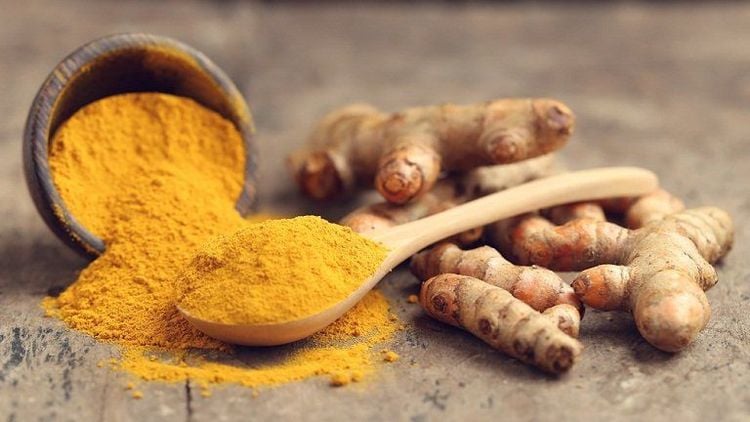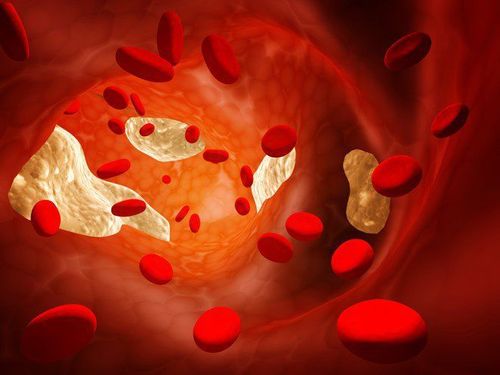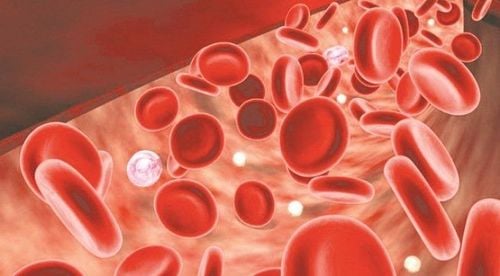Turmeric is not only a unique spice but it also contains chemical compounds, typically curcumin, which are very good for health. So should people with anemia eat turmeric?
1. Turmeric has many medicinal uses
Turmeric is a popular spice, widely used in Asian cuisine. It is known as a main ingredient in curries. Turmeric is often bitter and warm and is used to flavor and color dishes.
Besides, turmeric is also widely used as a medicine. It contains a yellow chemical called curcumin, which is used to color foods and cosmetics. Currently, this spice is being used to support the treatment of conditions related to inflammation and pain, such as osteoarthritis. In addition, turmeric also has an effect on improving the symptoms of hay fever, high cholesterol, depression, itching and liver disease. Many people also use turmeric to treat heartburn, poor thinking and memory, stress, inflammatory bowel disease and many other conditions.
2. Should people with anemia eat turmeric?
Turmeric is considered an effective anti-inflammatory and anti-cancer agent. However, in an experiment on mice, it was shown that chemical compounds in turmeric can bind to iron in the intestine and cause iron deficiency.
In fact, turmeric is one of the spices known to inhibit iron absorption by 20-90% in humans. The active ingredient curcumin in turmeric binds to ferric iron (Fe3+) to form a ferric-curcumin complex. In addition, curcumin also inhibits the synthesis of hepcidin, one of the peptides closely related to iron balance. Iron deficiency can lead to severe anemia. Therefore, people with symptoms of iron deficiency anemia should consult their doctor before using any turmeric supplements.
Overall, turmeric's ability to absorb iron in the gut may benefit people with iron overload conditions, such as hemoglobinopathies or hemolytic anemias (such as sickle cell disease).

3. Other Benefits of Turmeric
Here are some notable health benefits of consuming turmeric, including:
3.1. Improves Hay Fever Symptoms
The curcumin compound in turmeric helps reduce typical symptoms of hay fever, such as runny nose, itching, sneezing, and nasal congestion.
3.2. Reduces Depression
Most studies have shown that using curcumin from turmeric can reduce symptoms of depression in people who are taking medication to treat depression.
3.3. Reduces Blood Cholesterol
Turmeric can be used to reduce blood fats, also known as triglycerides. It also helps reduce high blood cholesterol levels.

3.4. Good for the liver
People with non-alcoholic fatty liver disease can take turmeric extract to reduce signs of liver damage. Turmeric is believed to prevent the accumulation of excess fat in the liver in people with this condition.
3.5. Reduce joint pain
Some studies have shown that using turmeric extract alone or in combination with other herbal ingredients can reduce pain and improve bone function in people with osteoarthritis of the knee. In addition, turmeric also works similarly to ibuprofen, an effective pain reliever for joint pain.
3.6. Improve symptoms of itching caused by mustard gas
A preliminary study found that using a combination product of C3 Complex and Sami Labs LTD containing curcumin along with black pepper daily for 4 weeks can reduce the severity of itching and improve the quality of life for patients with chronic itching caused by mustard gas.
3.7. Reduces symptoms of premenstrual syndrome (PMS)
Taking turmeric extract daily for 7 days before your period and continuing for 3 days after your period ends can help improve headaches, fatigue, and irritability caused by PMS.
4. Side effects and safety of turmeric
Turmeric is considered to be absolutely safe when used orally for a short time. Turmeric products that provide up to 8 grams of curcumin per day are also considered safe for use for up to 2 months. In fact, turmeric rarely causes serious side effects. However, some people may experience mild side effects such as nausea, abdominal pain, diarrhea, and dizziness. These side effects can occur if you use turmeric in high doses.
In addition, turmeric is also absolutely safe when applied to the skin. It may also not cause side effects when applied to the skin inside the mouth. In addition, when applied to the rectum, turmeric is also very safe, this root can even be used as a laxative.

5. Special warnings when using turmeric
5.1. For pregnant and breastfeeding women
Turmeric is absolutely safe when consumed orally with certain foods during pregnancy and breastfeeding. However, it is not safe when taken orally with certain medications during pregnancy. Because it can promote menstruation or stimulate the uterus, which can be dangerous for the health of both mother and baby.
5.2. Gallbladder problems
Turmeric can make gallbladder problems worse. Therefore, you should not use turmeric if you have kidney stones or bile duct obstruction.
5.3. Bleeding conditions
Using turmeric can slow down the blood clotting process. This will increase the risk of bleeding and bruising in people with bleeding disorders.
5.4. The body becomes sensitive to hormones
The chemical curcumin in turmeric can act like an estrogen hormone in the body. This makes the body more sensitive to hormones. In addition, some studies have also shown that turmeric can reduce the effects of estrogen in some hormone-sensitive cancer cells, such as breast cancer, uterine cancer, uterine fibroids, endometriosis, and ovarian cancer. Therefore, if you are suffering from a certain medical condition, you should use turmeric with caution to avoid making the disease worse due to exposure to hormones.
5.5. Affects fertility
Consuming turmeric can reduce testosterone levels and sperm movement in men. This can hinder fertility, so you should consider using turmeric if you are trying to have a baby.
5.6. Iron deficiency
Using turmeric can hinder the body's absorption of iron. Therefore, people with iron deficiency should be cautious when using them.

5.7. Liver disease
Turmeric is said to have the risk of damaging the liver, especially in people with liver disease. Therefore, to ensure safety, it is best to avoid using this spice if you have liver problems.
5.8. Surgery
Using turmeric can slow down the blood clotting process, making bleeding more severe during and after surgery. Therefore, you should stop using turmeric at least 2 weeks before surgery as directed by your doctor.
Finally, using turmeric with some blood thinners can increase the risk of bruising and bleeding. The most common blood thinners include clopidogrel (Plavix), aspirin, ibuprofen (Advil, Motrin, others), diclofenac (Voltaren, Cataflam, others), enoxaparin (Lovenox), dalteparin (Fragmin), warfarin (Coumadin), or heparin. Talk to your doctor about taking turmeric with these medications so they can be adjusted accordingly.
To arrange an appointment, please call HOTLINE or make your reservation directly HERE. You may also download the MyVinmec app to schedule appointments faster and manage your reservations more conveniently.
References: webmd.com, .ncbi.nlm.nih.gov













